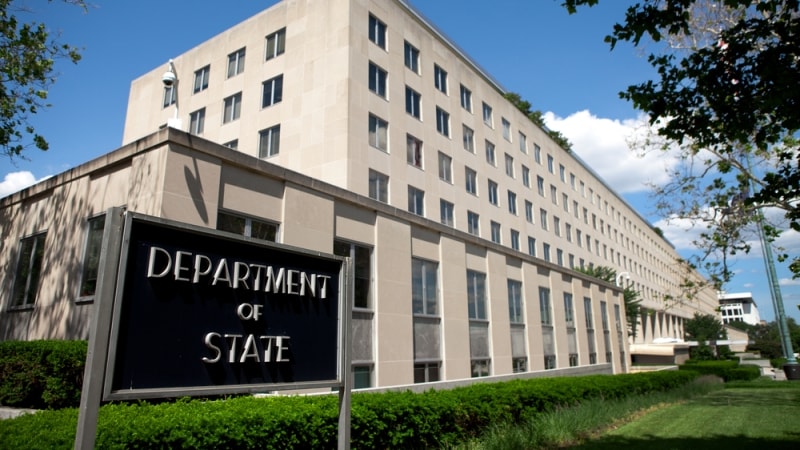
A proposed reorganization of the State Department would undermine its Bureau of Cybersecurity and Digital Policy’s (CDP) cybersecurity efforts, experts and lawmakers warned during a House panel hearing on Tuesday.
Last week, Secretary of State Marco Rubio proposed a massive reorganization of the State Department that would split the CDP between the agency’s Economic Growth office and a new Bureau of Emerging Threats.
Since its establishment in 2022, the office has been responsible for spearheading the nation’s cyber diplomacy and played a key role in the United States’ response to Chinese cyber groups’ attacks on American critical infrastructure.
“This move will create exactly the duplication and the waste this administration says it seeks to avoid, even more concerning it deep prioritizes a cross-cutting issue that needs to be tackled holistically and at the highest levels,” said Rep. William Keating, D-Mass., the ranking member of the House Foreign Affairs Subcommittee on Europe.
Witnesses also said that the move could imperil the bureau’s cyber efforts, with Annie Fixler, director of the Center on Cyber and Technology Innovation at the Foundation for Defense of Democracies, telling lawmakers that the reorganization “appears to put its cybersecurity efforts at risk and contradict guidance to integrate cybersecurity and digital economy efforts.” Fixler added that successes the bureau has achieved have been “because of this integration.”
Rep. Gabe Amo, D-R.I., argued that the reorganization could jeopardize coordination efforts between the 11 other agencies the CDP has agreements with, including the Department of Defense, Cybersecurity and Infrastructure Security Agency, and the intelligence community.
“Secretary Rubio’s new reorganization plan for the State Department breaks CDP,” said Rep. Amo. “This plan undermines the core reason CDP was created against streamlining international cyber policy … ending coordination with CDP could cause tremendous harm in keeping Americans safe.”
Through these collaborative efforts, CDP works to align cyber and digital strategies and foreign policy with national security goals. Latesha Love-Grayer, director for international affairs and trade at the Government Accountability Office (GAO), said that the current structure of CDP has been key in achieving those goals.
“It was very important that the [ambassador-at-large] did report directly to the deputy secretary because they had more direct influence and the ability to get leadership support on major decisions [because] that coordination sat above all the other bureaus,” explained Love-Grayer. “Breaking that up could look different in the future.”
Beyond restructuring efforts that could change the CDP’s operations, Love-Grayer also noted that in a recent report by GAO, the Federal watchdog found that the bureau lacks the skilled workforce to effectively carry out its mission.
“[The CDP needed] to recruit a specific type of official, they needed someone who had not just technical capability but also diplomacy skills,” said Love-Grayer. “It’s very hard to compete with the private sector for individuals who can harness both of those skill sets. And so having the staff – if you want to get them on board – keeping them and helping them to grow and understand the issues is important.”
Rep. Sarah McBride, D-Del., later noted that maintaining a competitive edge with the private sector requires “a respectful, predictable, sustainable career option for public servants across the Federal government,” alluding to recent slashes to the Federal workforce by the Trump administration.
